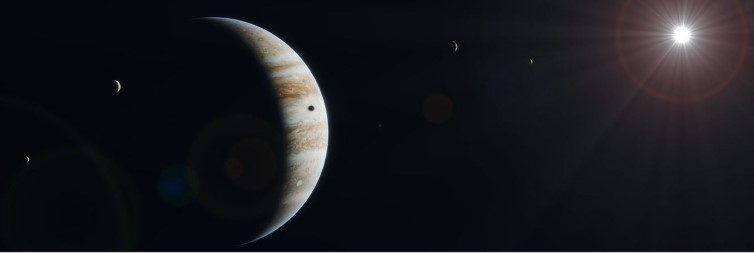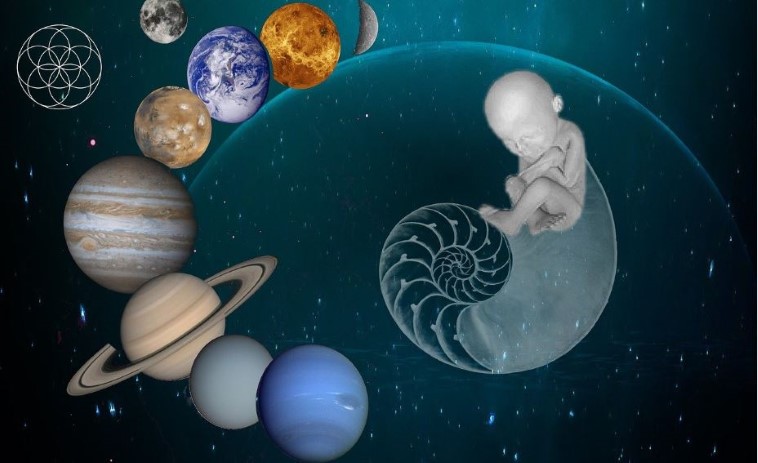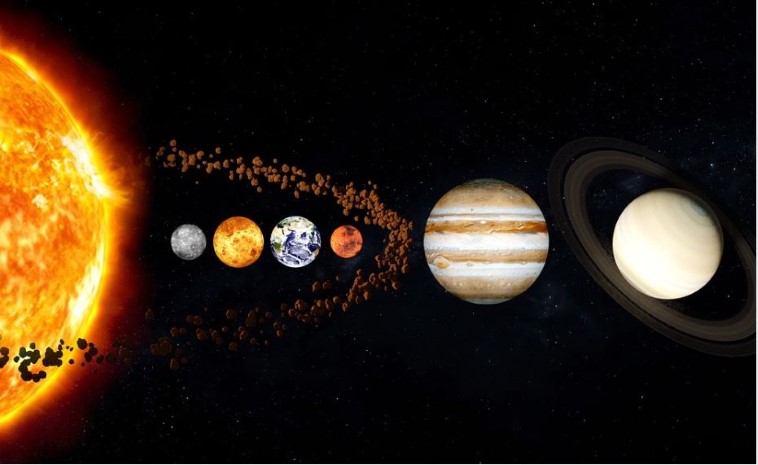Jupiter is responsible for the existence of life in our universe

It is simply incredible to think that a distant object could have such power to the point where without it – we humans would not exist. In fact, did you know that there are astronomers who believe that Jupiter is necessary for life anywhere in the universe, just like ours: of a certain mass, at a certain distance from the star?
Jupiter’s diameter is 11 times that of Earth and it is the largest planet in the solar system. But Jupiter, for our earthly, everyday concept, is very far away.
Think of it this way: wherever you are, the farthest point on Earth is a little over 20,000 kilometers. It is 20 times more to the Moon: 384,000, and to Jupiter 750 million kilometers – on average. It is simply incredible that such a distant object has such power and that without it, we humans would not exist.
Planetologists agree that from the very beginning, Jupiter grew very quickly and was the first of the planets to form, thus having a decisive influence on the entire planetary system within its orbit.
First of all, with its increasingly powerful gravity, it dispersed numerous small bodies that chaotically raced around the Sun during the early solar system.
Since bodies in different orbits move at different speeds, the gravitational influence of Jupiter on the surrounding objects is not constant but is repeated in passing cycles and with an accumulative effect. How so?
Well, every time some rocks passed by Jupiter, they would receive a strong gravitational impulse from it. In the process, some bodies were finally ejected from their orbits and sent towards the outer parts of the solar system, or the opposite when they became missiles that crashed into the inner planets.

This crash in the early stages of the development of the solar system was of crucial importance for future life on Earth. A large number of bodies that Jupiter threw on our planet came from a region rich in water, and today’s oceans on Earth largely originate from those meteorites. Without them, our planet would be quite dry.
Speaking of collisions, let’s mention one particularly dramatic and precious for life. A body the size of Mars in a chaotic era 4.5 billion years ago hit the Earth.
In a cataclysmic explosion, a huge amount of the Earth’s outer mantle flew off and spread around the planet. But very quickly from those fragments the Moon was formed – without which the living world today would not exist.
The influence of Jupiter
Jupiter has a special influence on asteroids in a belt that extends two to four astronomical units from the Sun. That space between Mars and Jupiter was, in the opinion of 18th-century astronomers, too large to be empty, and they assumed that a large planet that had not been discovered until then was hidden in it.
That’s why they set out on a systematic search and indeed, on January 1, 1801, Giuseppe Piazzi, an astronomer from Sicily, found a body in that area, which he named Ceres (after the Roman goddess of fertility and marriage).
But it turned out that Ceres did not meet the expectations of astronomers, because it was much smaller than they expected. Later, many other small bodies were found in the same area, which raised the question: why didn’t a decent planet form in that area, from the existing material.

Today we know that the reason for this is the influence of Jupiter. With its gravitational effect, it prevents millions of asteroids from merging into a larger body in that belt, and that’s why in that belt we only have the mentioned Ceres, which reached a diameter of nearly a thousand kilometers. All other bodies are significantly smaller.
In the same way, Jupiter stopped the growth of Mars. Since Mars is further from Jupiter than the asteroids in its belt, it suffers less influence from this large planet and that is why it managed to grow to today’s dimensions (6792 km), but not more than that.
Without Jupiter, Mars today would have the dimensions of the Earth, it would have a greater mass, and therefore a stronger gravity, with all other consequences that would make it resemble our planet in many ways.
It turns out that without Jupiter, the solar system today would have two more Earth-like planets (Mars and an unsuspecting planet formed by asteroids), probably with seas and oceans since they would all be in the habitable zone.
Want to read more about the universe? Visit our blog!

